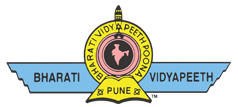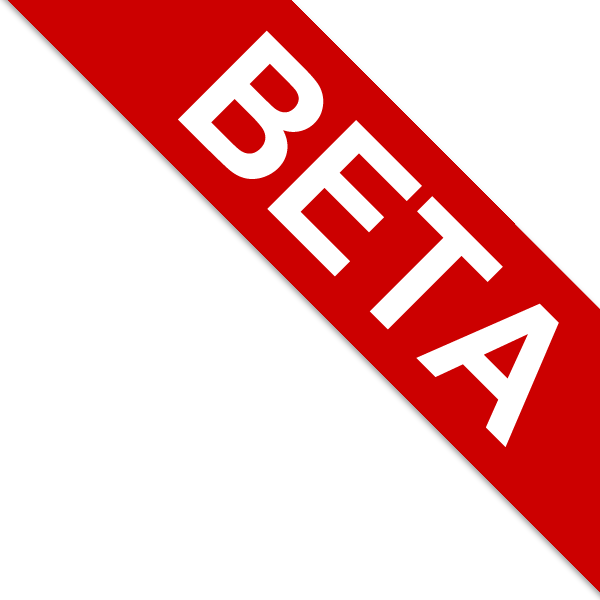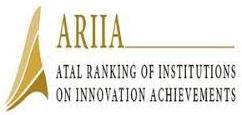POs, PEOs, PSOs : All
POs PEOs PSOs - Civil Engineering
POs PEOs PSOs - Civil Engineering
Program Education Objectives (PEOs)
- The Graduate will be able to apply Engineering Principals to develop their carrier in civil Engineering, Higher Education and Research.
- Course Graduates will be technically and professionally well established in their carrier.
- To serve community by providing Employment through Entrepreneurship.
- Analyze and design civil Engineering system with social awareness and Responsibility
Program Specific outcomes of civil Engineering (PSO)
- Analyze and Design of civil Engineering structures
- Should be able to clearly understand the concepts and applications in the field of survey.
- Should have the capability to comprehend the use of modern design tools to analyze and design the structures.
POs, PEOs and PSOs - Computer Engineering
POs, PEOs and PSOs - Computer Engineering
Course / Program: B.E. Computer Engineering
Learning Outcomes are the statements that describes significant and essential learning that learners have achieved, and can reliably demonstrate at the end of course or program. Program Outcomes identify what the learner will know and be able to do by the end of the course or program- the essential and enduring knowledge, abilities(skill), attitude that constitute the integrated learning needed by graduate of the course or program. The learning outcomes approach to education means basing program and curriculum design, content and delivery, and assessment on an analysis of the integrated knowledge skills and values needed by both student and society. In this outcome based approach to education, the ability to demonstrate learning is key point.
Learning outcomes are statements that specify what learner will know or be able to do as result of learning activity i.e. the outcome that student must meet on the way to attaining particular degree.
(1) Program Outcomes (PO)
| S.No. | Program Outcomes (PO) | Statements |
| 1 | PO1 | Engineering Knowledge: To apply knowledge of mathematics, science, engineering fundamentals, problem solving skills, algorithmic analysis to solve complex engineering problems. |
| 2 | PO2 | Problem analysis: To analyze the problem by finding its domain and applying domain specific skills. |
| 3 | PO3 | Design/development of solutions: To understand the design issues of the product/software and develop effective solutions with appropriate consideration of public health and safety, cultural, societal, and environmental issues. |
| 4 | PO4 | Conduct investigations of complex problems: To find solutions of complex problems by conducting investigations applying suitable techniques. |
| 5 | PO5 | Modern tool usage: To adapt the usage of modern tools and recent software. |
| 6 | PO6 | The engineer and society: To contribute towards the society by understanding the impact of Engineering on global aspect. |
| 7 | PO7 | Environment and sustainability: To understand environment issues and design a sustainable system. |
| 8 | PO8 | Ethics: To understand and follow professional ethics. |
| 9 | PO9 | Individual and team work: To function effectively as an individual and as member or leader in diverse teams and interdisciplinary settings. |
| 10 | PO10 | Communication: To demonstrate effective communication at various levels. |
| 11 | PO11 | Project Management and finance: To apply the knowledge of Computer Engineering for development of projects, and its finance and management. |
| 12 | PO12 | Life-Long Learning: To keep in touch with current technologies and inculcate the practices of lifelong learning. |
(2) Program Educational Outcomes (PEO)
| S.No. | Program Educational Outcomes (PEO) | Statements |
| 1 | PEO1 | To prepare globally competent graduates having strong fundamentals, domain knowledge, updated with modern technology to provide the effective solutions for engineering problems. |
| 2 | PEO2 | To prepare the graduates to work as a committed professional with strong professional ethics and values, sense of responsibilities, understanding of legal, safety, health, societal, cultural, and environmental issues. |
| 3 | PEO3 | To prepare committed and motivated graduates with research attitude, lifelong learning, investigative approach, and multidisciplinary thinking. |
| 4 | PEO4 | To prepare the graduates with strong managerial and communication skills to work effectively as individual as well as in teams. |
(3) Program Specific Outcomes (PSO)
| S.No. | Program Specific Outcomes (PO) | Statements |
| 1 | PSO1 | Professional Skills-The ability to understand, analyze and develop computer programs in the areas related to algorithms, system software, multimedia, web design, big data analytics, and networking for efficient design of computer-based systems of varying. |
| 2 | PSO2 | Problem-Solving Skills- The ability to apply standard practices and strategies in software project development using open-ended programming environments to deliver a quality product for business success |
| 3 | PSO3 | Successful Career and Entrepreneurship- The ability to employ modern computer languages, Environments, and platforms in creating innovative career paths to be an entrepreneur, and a zest for higher studies |
POs PEOs PSOs - Electronics & Telecommunication Engineering
|
Program Outcomes | |
| PO1 | An ability to apply knowledge of basic sciences, mathematical skills, engineering and technology to solve complex electronics and communication engineering problems |
| PO2 | An ability to identify, formulate and analyze engineering problems using knowledge of Basic Mathematics and Engineering Sciences |
| PO3 | An ability to provide solution and to design Electronics and Communication Systems as per social needs |
| PO4 | An ability to investigate the problems in Electronics and Communication field and develop suitable solutions. |
| PO5 | An ability to use latest hardware and software tools to solve complex engineering problems |
| PO6 | An ability to apply knowledge of contemporary issues like health, Safety and legal which influences engineering design |
| PO7 | An ability to have awareness on society and environment for sustainable solutions to Electronics and Communication Engineering problems |
| PO8 | An ability to demonstrate understanding of professional and ethical responsibilities |
| PO9 | An ability to work efficiently as an individual and in multidisciplinary teams |
| PO10 | An ability to communicate effectively and efficiently both in verbal and written form. |
| PO11 | An ability to develop confidence to pursue higher education and for life-long learning |
| PO12 | An ability to design, implement and manage the electronic projects for real world applications with optimum financial resources |
|
Program Specific Outcomes | |
| PSO1 | Professional Skills: The ability to research, understand and implement computer programs in the areas related to algorithms, system software, multimedia, web design, big data analytics, and networking for efficient analysis and design of computer-based systems of varying complexity. |
| PSO2 | Problem-Solving Skills: The ability to apply standard practices and strategies in software project development using open-ended programming environments to deliver a quality product for business success. |
| PSO3 | Successful Career and Entrepreneurship: The ability to employ modern computer languages, environments, and platforms in creating innovative career paths, to be an entrepreneur, and a zest for higher studies. |
POs, PEOs and PSOs - Mechanical Engineering
Department of Mechanical Engineering
Program Outcomes (POs)
POs are statements that describe what students are expected to know and be able to do upon graduating from the program. These relate to the skills, knowledge, analytical ability attitude and behavior that students acquire through the program. The POs essentially indicate what the students can do from subject-wise knowledge acquired by them during the program. As such, POs define the professional profile of an engineering graduate.
- Engineering Knowledge: Apply the knowledge of mathematics, science, engineering fundamentals, and an engineering specialization to the solution of complex engineering problems.
- Problem Analysis: Identify, formulate, review research literature, and analyze complex engineering problems reaching substantiated conclusions using first principles of mathematics, natural sciences and engineering sciences.
- Design/Development of Solutions: Design solutions for complex engineering problems and design system components or processes that meet the specified needs with appropriate consideration for the public health and safety, and the cultural, societal, and environmental considerations.
- Conduct Investigations of Complex Problems: Use research-based knowledge and research methods including design of experiments, analysis and interpretation of data, and synthesis of the information to provide valid conclusions for complex problems:
- Modern Tool Usage: Create, select, and apply appropriate techniques, resources, and modern engineering and IT tools including prediction and modeling to complex engineering activities with an understanding of the limitations.
- The Engineer and Society: Apply reasoning informed by the contextual knowledge to assess societal, health, safety, legal and cultural issues and the consequent responsibilities relevant to the professional engineering practice.
- Environment and Sustainability: Understand the impact of the professional engineering solutions in societal and environmental contexts, and demonstrate the knowledge of, and need for sustainable development.
- Ethics: Apply ethical principles and commit to professional ethics and responsibilities and norms of the engineering practice.
- Individual and Team Work: Function effectively as an individual, and as a member or leader in diverse teams, and in multidisciplinary settings.
- Communication: Communicate effectively on complex engineering activities with the engineering community and with society at large, such as, being able to comprehend and write effective reports and design documentation, make effective presentations, and give and receive clear instructions.
- Project Management and Finance: Demonstrate knowledge and understanding of the engineering and management principles and apply these to one’s own work, as a member and leader in a team, to manage projects and in multidisciplinary environments.
- Life-long Learning: Recognize the need for, and have the preparation and ability to engage in independent and lifelong learning in the broadest context of technological change.
Program Specific Objectives PSOs
- Apply the knowledge of Mathematics, Sciences and engineering fundamentals to formulate, analyze and provide solutions to the problems related to Mechanical engineering and communicate them effectively to the concerned.
- Design mechanical systems in various fields such as machine elements, thermal, manufacturing, industrial and inter-disciplinary fields by using various engineering/technological tools to meet the mercurial needs of the industry and society at large.
- Choose further studies for research in topics such as design engineering thermodynamics, heat transfer, manufacturing processes as per his ability and inclination to solve real life technical problems in the Indian and foreign industries.
- Get knowledge of material science, metallurgy, measurement techniques, and automatic feedback control, hydraulic and pneumatic control which will be able to distinguish between right and wrong engineering procedures.
Program Educational Objective (PEOs)
- Be competent with technological background to analyze, design and solve industrial problems to obtain viable solution.
- To solve problems of social relevance ethically and work effectively in team
- Be lifelong learner and able to work on multidisciplinary projects with sustainable way.








